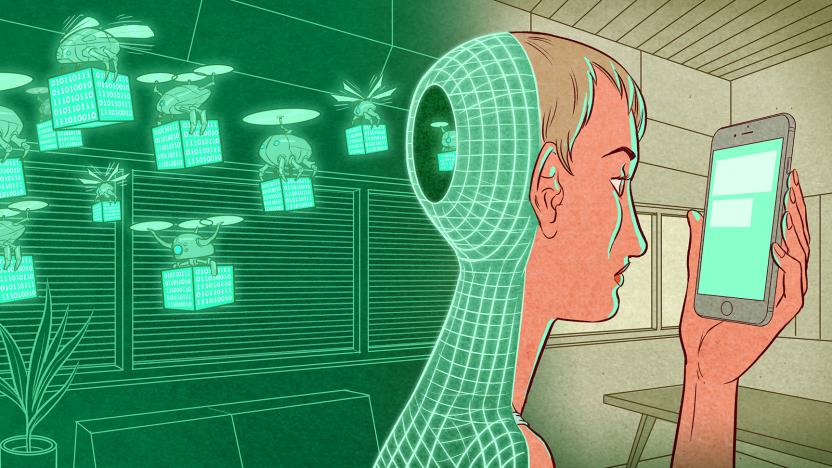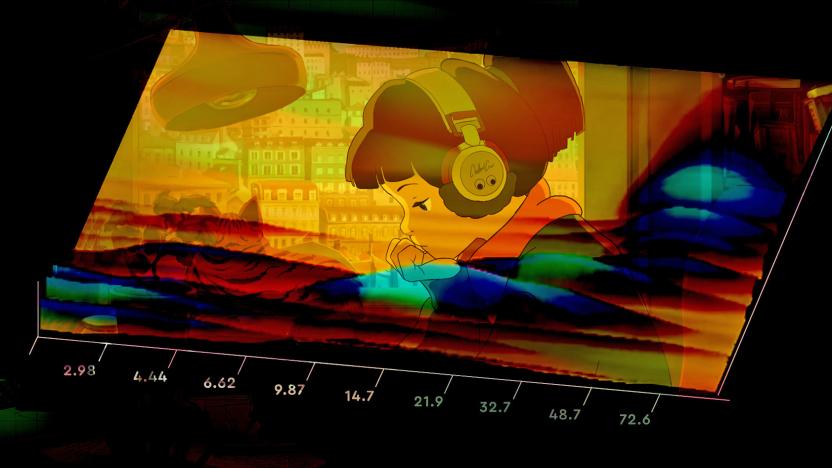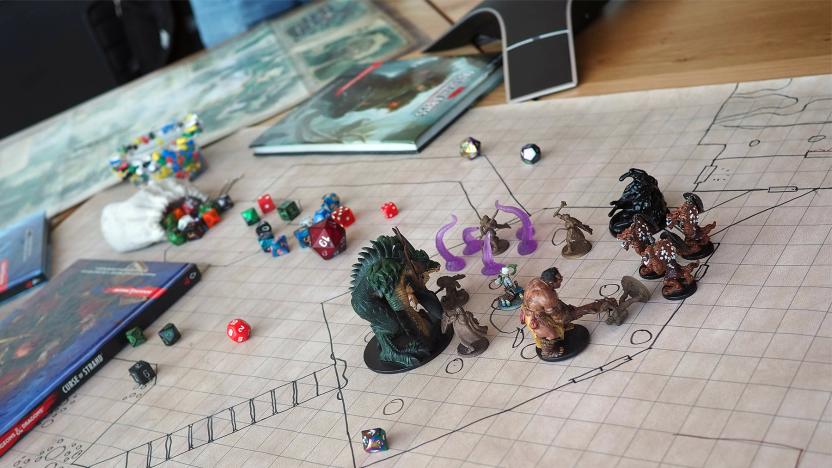longread
Latest

My digital shadow looks nothing like me
I have a shadow. There's the Dan Cooper writing these words right now, standing at his desk in an attic in Norwich, England. There is also the Dan Cooper who has the same name and address but who only exists inside a computer sitting on a shelf. I had never heard of this man until a couple of months ago, but now I am intimately familiar with who he is, his contradictions and the terrible truth he may reflect upon me.

Who controls your data?
The average American, one study tell us, touches their phone 2,600 times per day. By the end of a given year, that's nearly a million touches, rising to two million if you're a power user. Each one of those taps, swipes and pulls is a potential proxy for our most intimate behaviors. Our phones are not only tools that help us organize our day but also sophisticated monitoring devices that we voluntarily feed with interactions we think are private. The questions we ask Google, for instance, can be more honest than the ones we ask our loved ones -- a "digital truth serum," as ex-Googler and author Seth Stephens-Davidowitz writes in Everybody Lies: Big Data, New Data, and What the Internet Can Tell Us About Who We Really Are. Hoover up these data points and combine them with all of our other devices -- smart TVs, fitness trackers, cookies that stalk us across the web -- and there exists an ambient, ongoing accumulation of our habits to the tune of about 2.5 quintillion (that's a million trillion) bytes of data per day.

Unpaid and abused: Moderators speak out against Reddit
This article was produced in partnership with Point, a YouTube channel for investigative journalism. It discusses topics that you may find upsetting and contains strong language and racial slurs. Somewhere out there, a man wants to rape Emily. She knows this because he was painfully clear in typing out his threat. In fact, he's just one of a group of people who wish her harm. For the past four years, Emily has volunteered to moderate the content on several sizable subreddits -- large online discussion forums -- including r/news, with 16.3 million subscribers, and r/london, with 114,000 subscribers. But Reddit users don't like to be moderated.

The weird, wild and expensive world of blockchain art
Is it still shocking in 2018 to see someone drop more than $50,000 on a digital playing card? Well, that's what happened when Gods Unchained, a blockchain-based digital card game, wrapped an auction on its rarest card to date: the Hyperion Mythic card. It sold for 146.279 ETH, which was worth about $54,000 at the time. If that doesn't shock you, how about the fact that a digital trading card of Elon Musk is currently on auction for about the same price?

Chocolate, bioterrorism and the birth of Brazilian funk
In the 1990s, the cacao farmers of Brazil fell into a collective depression. Some hanged themselves, others dosed themselves with rat poison, still others walked around crying and saying they didn't have anything to eat. The cacao pods on orchards throughout Bahia sat stagnant on their branches, rotting from the inside out. A coven of foreign, tightly gnarled stalks covered the trees themselves. The country had been the world's third-largest producer of cocoa beans, but it had fallen from grace and even had to import beans from West Africa to satisfy its residents' sweet tooth. Juliana Pinheiro Aquino remembers it well. "My father was depressed. He was very sad," she said.

The science behind the 'beats to study to' craze
I sit at my desk at least eight hours a day. Between the steady pings from Slack, my trusty group chat and the siren song of the greater internet, staying focused can be difficult. As I write this, I'm swiping between a full-screen Scrivener window and a full-screen Chrome window because... I honestly don't know. Some people listen to podcasts at work to make mindless tasks go by. Unfortunately, I can't simultaneously pay attention to a conversation and write, so to help combat the incessant distractions, I listen to music -- a lot of it. Usually I turn to original scores from movies and video games, but I switch it up with instrumental hip-hop, industrial and downtempo electronic. A side effect of my efforts to fight against distraction is that I'm always on the lookout for new music to help me focus. And I'm not alone.

Roborace is still pursuing its driverless race-car dream
Clearly, Roborace doesn't believe in bad luck. Last week, on Friday the 13th, the company chose to run its self-driving Robocar in front of a feverish crowd at England's Goodwood Festival of Speed. It was only the second time the team had demonstrated its futuristic vehicle publicly, following an unassisted lap in Paris roughly 13 months ago. There was no room for error. The absence of a human cockpit gives the car an unusually low profile. Its delicate curves were drafted by Daniel Simon, a concept-vehicle designer who has contributed to science-fiction blockbusters including Tron: Legacy, Prometheus and Oblivion. The robot racer's shape resembles a Formula 1 car, the Batmobile and a heat-seeking missile mashed together. The machine moved slowly, though, up the famous hill-climb course. Well, slowly compared with the other vehicles that had tackled the Goodwood track that day. Roborace had capped the car at 125 KMH (roughly 78 MPH) to ensure it completed the route safely. In the world of motorsport, that's pretty slow. The robot's racing line, too, was conservative. It stuck to the center of the road, leaving plenty of tarmac on either side as it both entered and exited each corner. Ayrton Senna da Silva, it was not. Still, the drive was a milestone for the British startup. Thousands hugged the track-side hay bales and watched as the car zipped toward the finish line. In a little under two minutes, it had completed the course and returned to its dormant state. The Roborace team could breathe a sigh of relief.

Japan's rhythm game infatuation: Empty wallets, full hearts
I am not showing you my receipts. We're not here to talk about me. We're here to talk about the hundreds of thousands of people dumping their money into the mobile rhythm-game industry. I just happen to be one of them.

Open source hasn’t made tech more open
There are two institutions dominating the top of the tech food chain today. On one side are big tech companies like Google, Facebook, Amazon, Microsoft and Apple, as well as China's big three of Baidu, Alibaba and Tencent. Alongside them are the massively funded, heavily staffed global cyberpowers -- most notably the US, China and Russia -- who are seeking to monitor and control information flows online in the name of national security or political control. Both are intertwined. Sometimes intimately, as in China, where an Orwellian social credit system is taking shape, and private companies are becoming indistinguishable from the state's apparatus. In the US, tech companies are now the biggest lobbyists and political donors in Washington, while in Russia there is a battle against the message app Telegram. Together, these forces control the vast majority of information that flows online, either through data gathering, surveillance or censorship. There is an opposition: Small, often bare-budget operations run by hackers, nonprofit activists and volunteers. These open-source, decentralized projects and cooperative alternatives aim to protect user security and provide them greater control of their personal data. Some, like Tor or Signal, aim to encrypt and protect digital communication from the peering eyes of governments and corporations. Others, like Orchid, Dat or Blockchain-based protocols such as Ethereum want to return the web to it's initial, decentralized roots. Whether or not they get more people to adopt their alternatives could determine whether the years-long trend toward greater corporate and governmental control of data will continue. At stake is nothing less than the future of the internet itself. "We need to find a way to balance our own privacy and security and the data economy we have built," said Mark Surman, executive director at the Mozilla Foundation. "We need to look at ways that both companies and governments are reigned in."

Hashtag United and the new world of startup soccer
There is an English soccer team which has toured the US and Spain, seen hundreds of thousands of fans tune into their weekend matches and played in some of the sport's most hallowed arenas against stars like Steven Gerrard. The team's captain alone has more YouTube followers than the official account of Manchester United, the world's highest earning club. They have yet to play their first official match.

The Brooklyn neighborhood remade as a VR game
Go east in Brooklyn, New York, past the blockchain software startups, gentrified co-working spaces and Edison-bulbed cocktail bars, and you reach Brownsville. In a former elderly home near the Langston Hughes Houses public housing complex is the Brownsville Community Justice Center. Within that center, more than 40 young people have been toiling for two years on an ambitious project: creating a faithful, block-by-block replica of their neighborhood and many of its residents in virtual reality for their own open-world video game. They've set up a green screen with volumetric scanning equipment, experimented with game mechanics inside an Oculus Rift and learned to develop using the platform Unity. It's an uncommon blend of cutting-edge gaming technology, driven and developed by a hyper-local team in an area where 37 percent of adults have a high school diploma and the median household income is around $25,000.

A tech entrepreneur prepares for prison
In two weeks, he'd be sitting in a federal prison in Oregon. On the first day of June, the magnitude clearly hadn't hit e-waste entrepreneur Eric Lundgren. "You're just being dropped in a new culture," he said from across the dining table of his childhood home in Lynden, Washington. He wore a white T-shirt with the words "strength," "freedom" and "nobility" printed alongside 20 stars. "I love extreme experiences. I honestly think there's going to be something about prison that's going to be really interesting to me. Anywhere that I go, I'm going to learn, and this is a place where I can learn a whole new type of life."

Audeze’s ambitious Mobius is more than a gaming headset
Tucked inside an unassuming office park just south of LA, there's a modest factory where some of the best audiophile-grade headphones are assembled on a daily basis. Audeze has built its reputation on planar magnetic technology, drivers that produce a more natural sound thanks to better frequency response and super thin components. During my visit, the company was making its final preparations to launch Mobius, a gaming headset that packs in audiophile sound and 3D audio to create a more immersive experience, especially for gamers. The company's headquarters is just under an hour from LA in Santa Ana. Here, all of the Audeze headphones are assembled. The company even makes its planar magnetic drivers in the modest production facility, a setup that allows it to put together everything by hand, closely monitor quality control and maintain a steady R&D pace.

Build morale by slaying monsters after work
On the 62nd floor of One World Trade Center, Lorghoth the Decayer is waiting. A party of brave coders and digital strategists gathers around a conference table to slay the wicked beast -- praying the D20 rolls their way. It's just another Wednesday night at Code & Theory, a digital creative agency in New York City's tallest skyscraper. Every other week, a team of developers and designers hops into a conference room (with a stunning view of Manhattan) to participate in a unique, after-hours exercise: a Dungeons and Dragons game night. Timm Woods, a professional dungeon master, leads each session, guiding the colleagues through intricate adventures filled with gypsy-camp raids, vindictive scarecrows and the cruel mists of Ravenloft. Woods, an energetic and scruffy Brooklynite, has been a professional dungeon master for about five years, running everything from after-school campaigns to private parties and events. The weekly sessions at Code & Theory represent the next step in his business plan: going corporate.

Inside Fox Sports’ plan to bring the World Cup to your living room
Tucked in the back of Fox Sports' Charlotte facility, a typically unused storage space was abuzz with activity in early April. A Los Angeles-based crew took advantage of the extra room in what used to be the headquarters of the Speed network to test gear that will be used to broadcast live soccer action from this summer's World Cup. There's no eye candy inside this warehouse space, but the final preparations that went on here are essential to sniffing out any potential issues before all the gear is packed into shipping containers for a monthlong voyage to Russia. In the span of a few hours, I'd learn what Fox had planned for the 2018 World Cup -- from in-depth preparations to a special studio, AR, VR and streaming.

How a YouTube video brought an extinct bird back from the dead
Kauai, Hawaii –– In 2015, Danish environmental artist Jakob Kudsk Steensen became obsessed with a bird that no longer exists. The Kaua'i 'o'o, a now-extinct species of small honeyeater, was last seen in Hawaii in 1987. According to a recent study in Science Advances, ornithologists have observed population declines in almost all of the Kauai Island's honeycreeper species, a famously diverse family of forest birds that have long-faced environmental destruction, the introduction of non-native species and slaughter of the native plantlife on their island. Scientists also say multiple more extinctions are likely in the coming decades. However, Steensen believes he and other ecologically-minded artists can one day bring long-lost species like the small Kaua'i 'o'o back from the dead, using a combination of technology, digital archiving tools and a whole lot of artistic imagination. Below is an essay on Steensen's current project on re-animation related to the Kaua'i 'o'o. Think of it as an introduction to the emerging world of online ecology.

'Til death do us part
Great Neck, NY -- As I write this, dozens of moths are being suffocated to death in my kitchen pantry without much ceremony. An exterminator named Danny is spraying an intoxicatingly aromatic layer of cedar oil along the inside corners of my kitchen cabinets and strategically placing pheromone traps in the critters' high-fly zones.

Talk to me
Brooklyn, New York -- Scooby, my friend Gram's dog, isn't exactly inscrutable. As a rambunctious five-year-old pit bull, he usually makes whatever he wants you to know fairly apparent. When Scooby first sees you, he tells you he's happy by wagging his tail and, when he's feeling particularly naughty, jumping up to lick your face. When he wants to play tug-of-war, he grabs a toy and presents it, his intent clear. When he's concerned, he barks, but only once or twice.

Wonders of Wildlife
Springfield, Missouri -- This story begins in a liquor store. That's where, in 1971, Johnny Morris first launched his Bass Pro Shops fishing and hunting empire, selling lures, bait and tackle amid the bottles of Jim Beam and Jack Daniel's in one of his father's Brown Derby booze shops. It's also where the Wonders of Wildlife National Museum and Aquarium begins, a monument to American conservation that opened up six months ago in the heart of the Ozark Mountains, calling itself "the world's largest wildlife museum."

Inside the animal internet
Halfway across the world, a goat is shivering. You know this because you've hooked her up to an accelerometer, which can measure tiny changes in her body movements. You also know the goat's heart rate, body temperature, how much energy she's using, when she's looking up or down and where exactly in her habitat she is at all times through high tech monitors. You have information about her immediate environment, things like temperature, humidity and altitude. With cameras, you can see the world from her vantage point. With acoustic sensors, you can hear her drink, feed and call to her goat kin.















